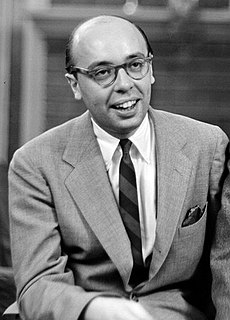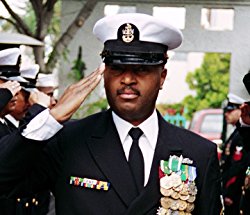A Quote by Rush Limbaugh
The reason Ataturk, Kemal Ataturk was and is so highly reputed, is he was attempting to modernize… That’s not the right word. Well, it is. For lack of a better way of saying it, he was trying to make Islam compatible with the modern twentieth century world.
Related Quotes
The main thing is that Ataturk saw the desperate condition of the countries that had not had an industrial revolution. Ataturk saw where history was going. He really did in Turkey what we are all hoping somebody will do in [Islamic] countries where fundamentalists thrive, that they get somebody today that has the vision that Ataturk had in 1915.
Today's Uncle Tom doesn't wear a handkerchief on his head. This modern, twentieth-century Uncle Thomas now often wears a top hat. He's usually well-dressed and well-educated. He's often the personification of culture and refinement. The twentieth-century Uncle Thomas sometimes speaks with a Yale or Harvard accent. Sometimes he is known as Professor, Doctor, Judge, and Reverend, even Right Reverend Doctor. This twentieth-century Uncle Thomas is a professional Negro -by that I mean his profession is being a Negro for the white man.
There are two Mustafa Kemals: one is I, the flesh and bone Mustafa Kemal... the scond Mustafa Kemal I cannot describe with the word 'I.' That Mustafa Kemal is not I - it is 'We.' That Mustafa Kemal is the enlightened and warrior collectivity that is striving for the new thought, the new life, and the Great Ideal on every corner of this country.
It's perfectly OK that there are certain people who do not accept Islam at all. Therefore, to announce that I am a Muslim can rub some people the wrong way. But my aim is to show that those governments that violate the rights of people by invoking the name of Islam have been misusing Islam. They violate these rights and then seek refuge behind the argument that Islam is not compatible with freedom and democracy. But this is basically to save face. In fact, I'm promoting democracy. And I'm saying that Islam is not an excuse for thwarting democracy.
What we argue in the piece is that the headscarf has become a political symbol for an ideology of Islam that is exported to the world by the theocracies of the governments of Iran and Saudi Arabia. Just like the Catholic Church in the 17th century did religious propaganda to challenge the Protestant Reformation, these ideologies are trying to define the way Muslims express Islam in the world.
It has been said that the three great develpments in twentieth century science are relativity, quantum mechanics, and chaos. That strikes me the same as saying that the three great developments in twentith century engineering are the airplane, the computer, and the pop-top aluminum can. Chaos and fractals are not even twentieth century ideas: chaos was first observed by Poincare and fractals were familiar to Cantor a century ago, although neither man had the computer at his disposal to show the rest of the world the beauty he was seeing.
F.R. Leavis's "eat up your broccoli" approach to fiction emphasises this junkfood/wholefood dichotomy. If reading a novel--for theeighteenth century reader, the most frivolous of diversions--did not, by the middle of the twentieth century, make you a better person in some way, then you might as well flush the offending volume down the toilet, which was by far the best place for the undigested excreta of dubious nourishment.
































